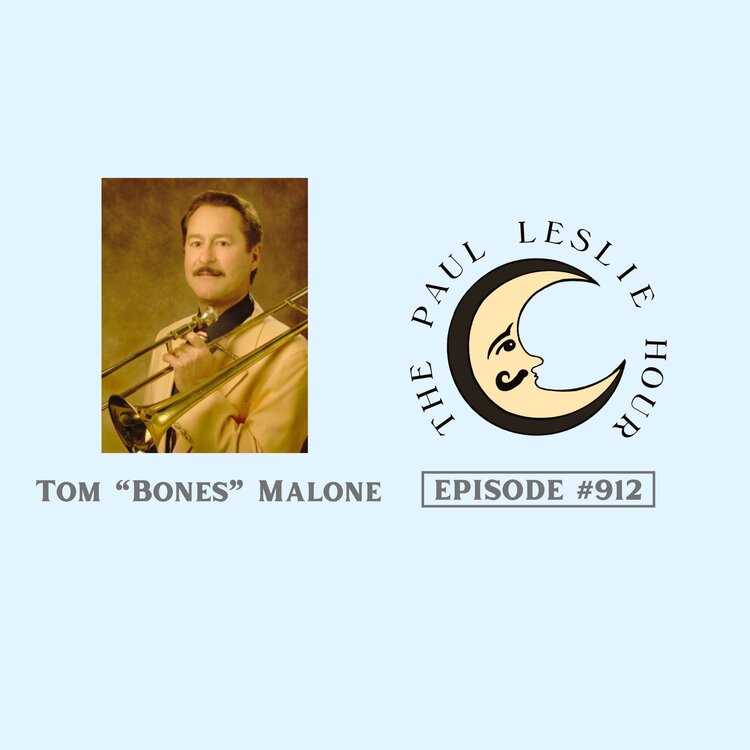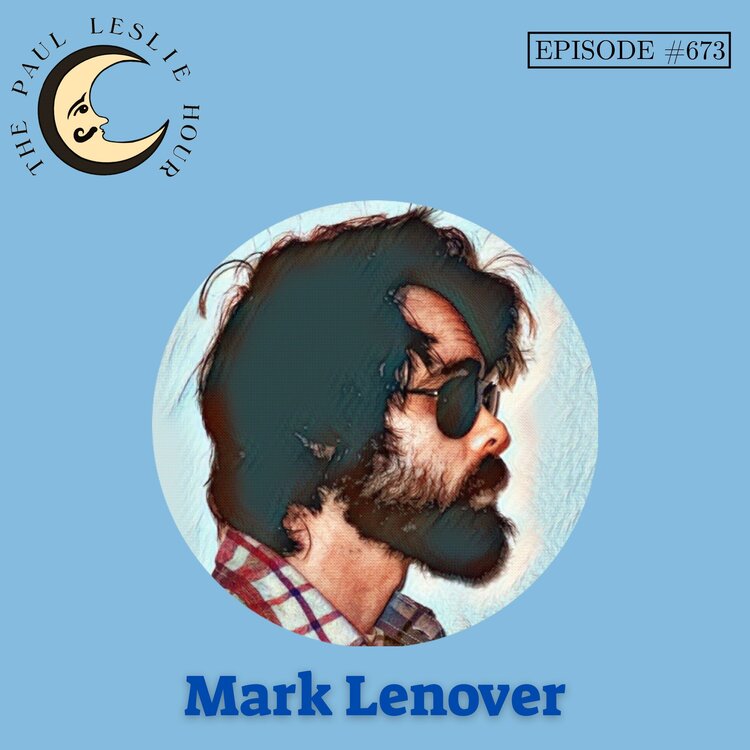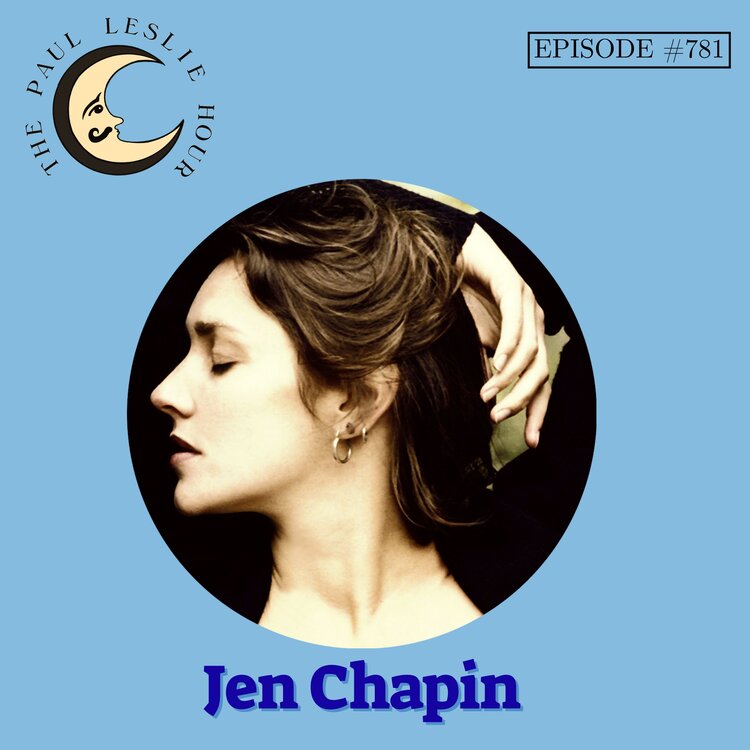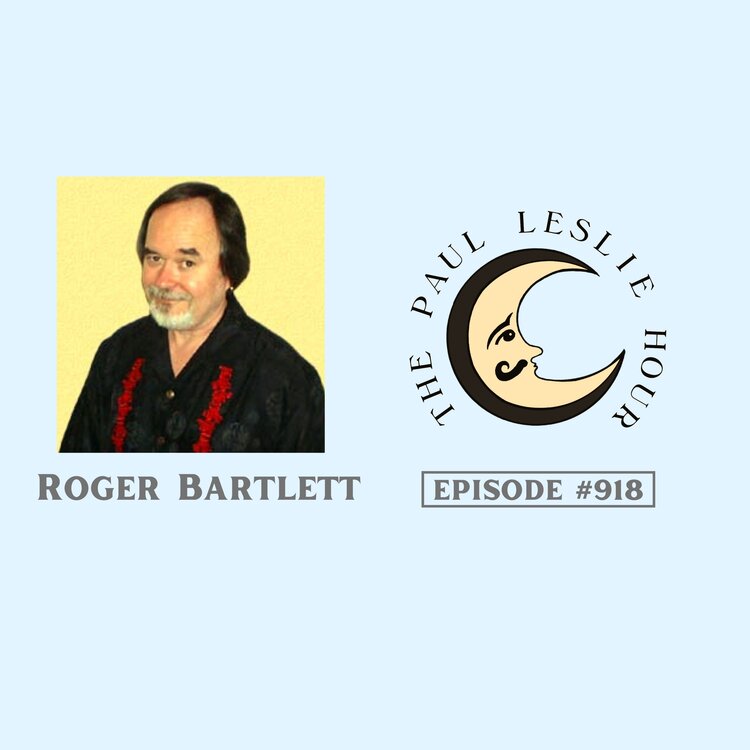The Tom “Bones” Malone Interview is featured on The Paul Leslie Hour.
Are you here?
I mean, are you here with me, the announcer? Okay, I see you nodding. Are you here with the host, Paul Leslie as well? Seems like you would be. He’s here too. What about with all of the other listeners of The Paul Leslie Hour? I mean… are we all here together?
Now that I’m certain you’re all here, allow me to announce this interview from our archives with Tom “Bones” Malone. Legendary name. Legendary guy. Who is he?
Tom “Bones” Malone specializes in the trombone, but also plays trumpet, tuba, tenor sax, baritone sax, flutes, piccolo and other instruments. He’s a multi-instrumentalist! He was a member of the CBS Orchestra on The Late Show with David Letterman from 1993 until the very last episode.
As a recording artist he has released two solo albums “Standards of Living” and “Soulbones.” Tom “Bones” Malone is a member of the Blues Brothers Band and has played with the likes of Billy Joel, Gloria Estefan, Frank Zappa, Bette Midler, Ringo Starr, Paul Simon, Tony Bennett and too many other bands and artists to list!
Yep, Tom “Bones” Malone, he’s a good one. Let’s start the show, but first keep in mind that this show relies on the support of listeners like you. You can go right here and give yourself and others the gift of stories. We thank you for listening and being a patron of independent media and the spoken word.
And with that I say to us all, let’s listen together.
Help Support the Show Here
Subscribe/stream on the following platforms:
• Rumble • RadioPublic • Stitcher • Apple •
• Spotify • Player FM • iHEARTRadio •
Consider sharing this interview on Social Media.
The Official Transcript
Ladies and gentlemen, it is our great pleasure to welcome the legendary, the one and only Tom “Bones” Malone. Thanks so much for joining us.
My pleasure, Paul
Who is the real Tom Malone?
Uh, a redneck kid from Mississippi, just started wearing shoes a couple of years ago.
(Laughs) Born in Mississippi. So what was life like growing up?
Well, I started driving a tractor when I was 11 years old. I had my own rifle when I was 11 years old. I milked cows every morning and every night and, uh, hauled hay, picked corn, worked hard in the fields. Uh, it was, uh – we grew everything that we ate except for coffee and rice.
And what kind of music did you grow up listening to?
Well, I started, uh, listening to the radio and it was mostly, uh, blues – rhythm and blues – and New Orleans rock and roll.
And what was your first musical influence that inspired you to want to pick up the horn?
When I was, uh, about 13, I went to the record store, having very little money – I had saved up enough money to buy one record – and this is, believe it or not, uh, this was about 1960, in Hattiesburg, MS there was a record store where you could listen to the vinyl record before you bought it. A vinyl record, uh, is a kind of a flat piece of, um, black vinyl about 12 inches in diameter. You put it on a turntable and it played music, similar to a CD. And, uh, so I listened to this record by a trombone player named Urbie Green and it totally flipped me out. So I bought this record, took it home and I literally learned how to play the trombone from listening to Urbie Green, playing this record and I would just play along with him. So he was my teacher, whether he knew it or not. And I played along with that record for about two years. So I have to credit Urbie Green as being my trombone teacher.
So what was it about the horn? What made you gravitate to it? What was it you liked about it?
I’m not sure, um, what it was. I, uh, I was in the sixth grade and I used to listen to the marching band rehearse on the football field outside my classroom window and I thought it would be cool to play in that band. So I went to – one day they made an announcement on the radio that anybody who’s interested in playing in the band should come to the band hall on Thursday night. So I showed up at the band hall with my brother and my mother and father. And the guy from the local instrument store had a display of instruments – nice new shiny brass instruments and woodwinds and stuff. So somehow I was strangely drawn to the trombone. I picked it up and I could already play a few notes on it. Uh, my father asked how much it was. They guy told him and my father said ‘Can’t afford it.’ and we started walking out the door. The band director grabbed me and said ‘The school owns a tuba. Would you like to play that?’ and I said yes. So I started playing the tuba. Then the following year we got a new band director who was a trombone player. He knew I was interested in playing the trombone so he loaned me his own horn one day. He says ‘Take this home and learn how to play it.’ He showed me where the positions were. So I did. I took it home and learned how to play it.
Well, tell us about your early days of playing with Brenda Lee.
Well I, I uh, I also started playing trumpet and saxophone, and I got a call one day when I was in college in Hattiesburg to play lead trumpet with Brenda Lee. I guess they didn’t have anybody in Jackson that could hit the, the high D. So, I hitch-hiked up every night and it paid $16.00 a night. I never got a ride back until the sun came up so I spent a lot of time thinking about the music business and a music career between 2 A.M. and 6 A.M. every morning that week. It was a great experience though. The music was great. Brenda Lee had, uh, her hit, I’m Sorry was out and her Rocking Around the Christmas Tree, uh, was a big hit at the time and – it was in December – so, uh, I thought I was in top of the world. And I didn’t mind all the hardship. I didn’t sleep much that week but, uh, I had a great time and, uh, just got more into being a musician.
You’ve played so many styles of music. Could you ever pick a favorite genre?
I just like music. To me it’s all sort of the same, whether it’s jazz, rhythm and blues, rock and roll, Latin, Jewish music, whatever it is – symphonic music, it’s all sort of the same to me. And there’s certain rhythmic differences and certain interpretation differences, as far as from the viewpoint of an instrumentalist but, uh, I like it all. And it doesn’t matter what instrument I play, I just like to play.
Well, speaking of liking it all, you’ve toured with acts as varied as Woody Herman, Doc Severinsen, and Frank Zappa. Which tour have you been on that was a favorite?
Uh, Blood, Sweat & Tears tour of Europe in 1973 was a big favorite of mine. And the five-week tour with the Blues Brothers in the United States, with John and Danny, in uh, around uh, in the vicinity of May and June 1980 was, uh, a special tour as well. Also playing with Billy Cobham’s band. We did a European tour and we did a West Coast tour where it was Billy Cobham and Weather Report. So those were, uh, those were memorable tours. And The Band from Woodstock – do you remember them, Paul?
Yeah, I’ve heard their recordings.
I, uh, played with them in the summer of ’76. And in the fall of ’76 we did the movie, The Last Waltz.
Amazing stuff. What was it like working with Frank Zappa?
Frank Zappa was an amazing guy and I really miss him. He died very young but – he died at 52 – and during his, uh, career he put out 60 albums. Uh, he was a crazy guy when he hit the stage but when he was off-stage he was like an organized businessman. He ran a very strict rehearsal, no fooling around. So, uh, he was kind of like two different personalities. But he was also a very nice guy off-stage, too. Like, if you went over his house to hang out he was very cordial and had a great sense of humor. And he was pretty much self-taught in his music.
I wanted to talk a little bit about Gil Evans. What was he like and how did he mold your life?
Gil Evans became my musical father. Um, I was in New York, I had this cheap apartment where I was crashing and, uh, a friend of mine from NorthTexasState, named Hannibal Marvin Peterson, came up to town. He was playing with Rahsaan Roland Kirk and he also started playing with Gil Evans. One night he had – he was crashing on my floor at my apartment on Broadway – uh, one night he had two gigs. The one with Rahsaan Roland Kirk was a paying gig and the other job, with Gil Evans, didn’t pay anything so he sent me in to play trumpet with Gil Evans. Uh, that night was Gil Evans’ 60th birthday. I met, uh, his son, Miles Evans, who was eight years old at the time. I also met several musicians who changed the rest of my life – a trombone player named Dave Bargeron, a trumpet player named Lew Soloff, um, David Sanborn, Howard Johnson, Herb Bushler, uh, Bruce Ditmas, Billy Harper – these are all people that opened doors for me for the rest of my life.
Now, you just listed several artists – and this is probably going to be a tough question – when I looked over at your bio and your resume, I couldn’t even list all the artists you’ve recorded and performed with. Is there any that have been especially thrilling?
Well, I was especially thrilled to play live and record with James Brown. He was always a hero of mine.Also, Little Stevie Wonder when he was 16. He was, uh, a big impression on me. He could play a bunch of different instruments so I figured “Well, why can’t I?’ Also, Ray Charles was a big inspiration to me. There’s lots of other people, too. It just goes on and on. Uh, I can’t really single anybody out as being the number one but I’m also very fortunate to have played with, uh, these music visionaries.
And you’ve also made recordings of your own songs, like the album Standards of Living. How did you pick out the songs for that?
Well, that was shortly after Gil Evans died. I played with Gil Evans from – uh, for the last 15 years of his life. He passed away at 75 and it was somewhat unexpected. Uh, I had many conversations with Gil about arranging and I actually arranged the songs that were on his albums, where he got the arranging credit and that, to me, was the ultimate compliment – to say that my arrangements were done by Gil Evans. Anyway, I, uh, wanted to play some jazz standards with musicians who had played with Gil Evans, who were in his regular band, and I wanted to replicate something of his voicing system. I came up with a, a Gil Evans voicing system and I put that into use on the album, Standards of Living.
Who is your favorite trombone player?
Wow, that is a tough question. I would have to start with Urbie Green, who taught me how to play. I’m also very impressed by the late J.J. Johnson. Bill Watrous, Conrad Herwig, uh, a 28 year old guy named Michael Dease up in New York. This guy is just amazing. Uh, and uh – wow – and uh, Bill Reichenbach in Los Angeles. Uh, there’s Jim Pugh. There’s an amazing number of great jazz trombone players up here. Robin Eubanks. Uh, wow – the list goes on and on.
You mentioned earlier about the Blues Brothers. What was your experience like with the Blues Brothers?
Uh, I started out with them from very, very first meeting about the Blues Brothers. I was the arranger for the Saturday Night Live band in 1978. I was called into a meeting with Danny and John. They came up with this concept of two guys who were orphans, that played blues and lived in Chicago, and they were sort of, uh, ne’er-do-wells. They wore the same size suit which was too big for one guy and too small for the other. They were just developing the characters at the time of this meeting. So, they wanted an arrangement of a song by James Cotton called Rocket 88. So I wrote out the arrangement and we rehearsed the band and we, we did the song for Lorne Michaels with the hopes of getting on Saturday Night Live that week. Well, we were not successful. We did not get on the show. The next week John and Danny and I met again and they were still hot on this idea of these two characters. So we – I wrote another arrangement of Hey Bartender. We did it for Lorne. Lorne said ‘Frankly, I don’t see anything funny about the Blues Brothers.’ So the following week we did not make the show. The third week, after read-through, Lorne said ‘The show is three minutes short. What are we going to do?’ He’s tearing his hair out. John and Danny jumped on him and said ‘Lorne – the Blues Brothers!’ So we got on the show. The response from the audience was amazing. We got letters and cards and phone calls which led to another performance of the Blues Brothers. Pretty soon, we had a record deal with Atlantic Records. We formed a band that was separate from the Saturday Night Live band, and went out to Los Angeles and did a live recording. The recording sold three million copies. And we got – then Danny started writing a movie script and the next thing you know, we’re doing a movie. And this was all from an idea that almost didn’t get on the air in the first place, almost never got off the ground. So – and also, I have to say that Danny and John were very nice to keep all the musicians in the movie. In most Hollywood productions of this sort, uh, they would get the band to do the sound track and then get some actors pretend to be the musicians. But Danny and John said ‘No. We’re not doing this unless the band comes with us.’ So I have, uh, Danny and John to thank for being in that movie, The Blues Brothers. John told me one day that he was going to make me the most famous trombone player since Jimmy Dorsey. And uh, as most of you know, Jimmy Dorsey was a saxophone player. (Laughs) So I never had, never had the heart to tell John that part of it because I knew what he meant. (Laughs) He was really, uh, a big-hearted guy and if he decided you were his friend, you were his friend for life, and he was a faithful friend and, uh, I really miss the guy.
What do you think about the album Briefcase Full of Blues?
Uh, it’s a, it’s a live album. It was recorded at the Universal Amphitheater in Los Angeles. At the time, the Universal Amphitheater was an outdoor venue and uh, there were, there was a lot of edits in that album. There were nine nights of performance and the producer, Bob Tischler, uh, incorporated at least three nights’ performance into each song. He would find the best verse and the best chorus and the best instrumental, the best intro, and he, uh, after listening to all these things carefully So there was a lot of post-production as far as the editing of this album was concerned. But I have to say that it is one of my favorite albums and there are a lot of hard-core Blues Brothers fans out there that agree with me.
How did you get hooked up with Paul Shaffer?
Well, Paul Shaffer and I met, uh, at Saturday Night Live when the show started in 1975. I was a member of the Saturday Night Live band from, uh, the very beginning for the first 10 years, and I was also the musical director, from ’81 to ’85, for the last four years of that 10 years. Uh, so Paul was the piano player on the original show and we met and we’ve been good friends ever since. Paul also – Paul and I also became the arranging team. If there was any comedy team that needed some music, Paul and I would rehearse with the actors and actresses and, uh, make a tape and then I would write an arrangement based on the format that we did in the rehearsal. So we’ve been, actually, an arranging team for quite a few years. Um, so Paul, um – later, later when I was a music director I got a call from a lady named Liz Anderson, who was my unit manager at NBC – she filled out the union contracts – she says ‘I have a new job.’ I said ‘Congratulations. What is that?’ and she says ‘I’m the associate producer of the David Letterman Show.’ And I said ‘What is that?’ She said ‘You’ve never seen it. It comes on real early in the morning, like seven in the morning. But we’re going to move the show to late-late night and I understand that – I know that you already have a job, Tom – but can you recommend somebody to lead a four-piece band and be a personality?’ Paul Shaffer had just returned from Los Angeles – he was in a sitcom called A Year at the Top with Greg Evigan. So Paul was sort of – after that show got cancelled, he was sort of just right back in town with not much going on, so I gave her Paul Shaffer’s phone number. Uh, two or three weeks later, I just happened to see them on the network feed rehearsing downstairs for this new David Letterman show, with a great band – with Hiram Bullock, Will Lee and Steve Jordan. Will Lee, as you may know, is still with the Letterman show, and Steve Jordan was the original drummer with the Blues Brothers. So, uh, Paul and I go way, way, way back. Uh, it was coincidental that Paul called me to join his band at CBS in 1993, when the show moved from NBC to CBS. And I never told Paul that story until after I was working here at CBS.
Is there someone in the CBS orchestra you feel a closer friendship with?
Well, uh, of course Paul ‘cause we go way, way back. And, uh, Will Lee, uh, and I were neighbors down in Greenwich Village for 20 years and, um, I have to say that, uh, he and I are very close friends. We’re also playing in a band called that Fab Faux for about 13 years now. It’s a Beatles cover band, based out of New York but we’ve been playing all over the United States. It’s, uh, five guys including Will Lee and Jimmy Vivino that, uh, sing and play the rhythm instruments. We also have, uh, a four-piece horn section and a violin and a viola – excuse me, a violin and a cello – that play with us and supplement the string synthesizer. So, it’s the only Beatles cover band that I know of that does the huge George Martin production songs like Penny Lane, Got to Get You into My Life, uh, Yesterday – all the real, uh, super duper, uh, arranged songs. The Beatles never performed those songs live because they could not – they didn’t have the extra instruments.
I keep waiting for you guys to come to Atlanta (laughs).
It’s just a matter of time. Do you know any promoters?
Uh, (pauses) I might. Let me do some thinking on that.
Let’s hook it up.
Who has been your favorite guest musician to play with on the Letterman show?
Wow! Well, there have been so many over the years but I guess it comes back to, again, to Ray Charles and James Brown. But I also, uh, enjoyed playing a song with Blues Traveler and um, um, Aerosmith – oh my god, now the list goes on and on and on. It’s really hard to, uh, nail me down on some of these questions, Paul, but they are very intelligent questions and I wish I had a really, really exact one-word answer.
If you could put it into words, what is it you like about music?
Wow. Everything. Uh, I like the rhythms and the harmony and I like playing and I like listening to it, uh, and uh, I just like everything about music.
I have two final questions for our special guest, Tom “Bones” Malone. What is your all-time favorite meal?
My all-time favorite meal?
Yes, sir.
Catfish.
‘Cause you’re a Mississippi guy?
I think, yes, my redneck is showing (laughs).
My last question for Mr. Tom “Bones” Malone: what would you like to say to all of our listeners?
Uh, to all your listeners I’d like to say keep listening to good music.
Well spoken. Well, Mr. Malone it’s been great to connect with you.
It’s totally my pleasure, Paul. We’ve been trying to schedule this for quite a while and, uh, it’s really a pleasure to talk with you.
TRANSCRIBED BY GAYLE BRAZDA



